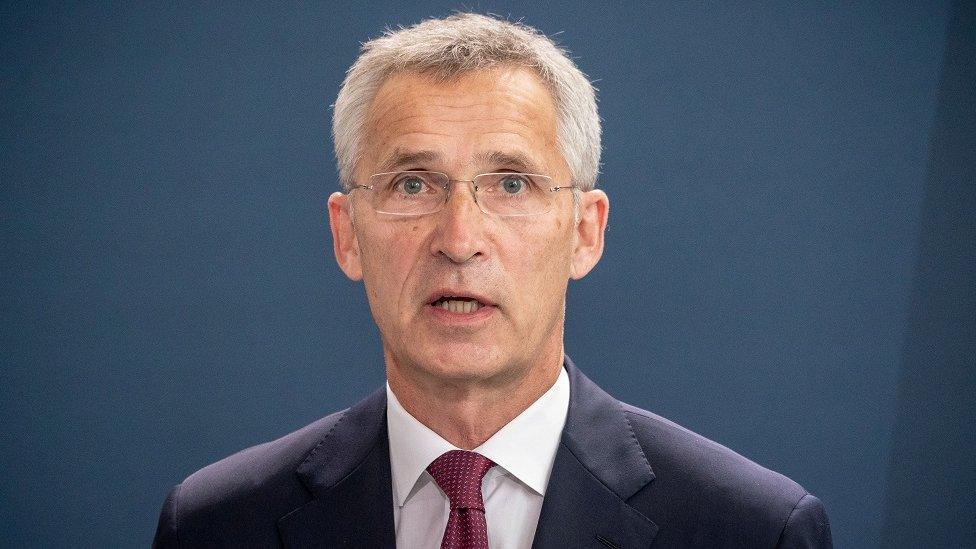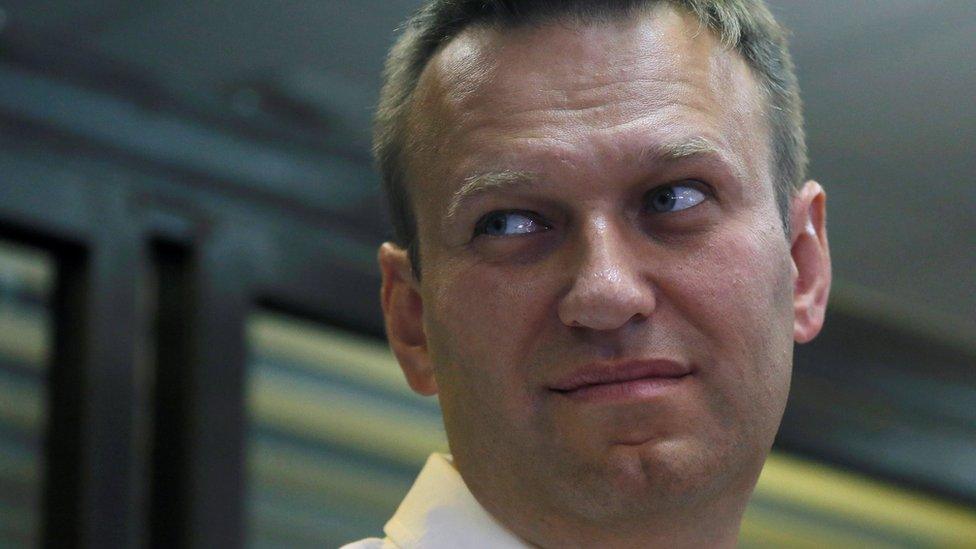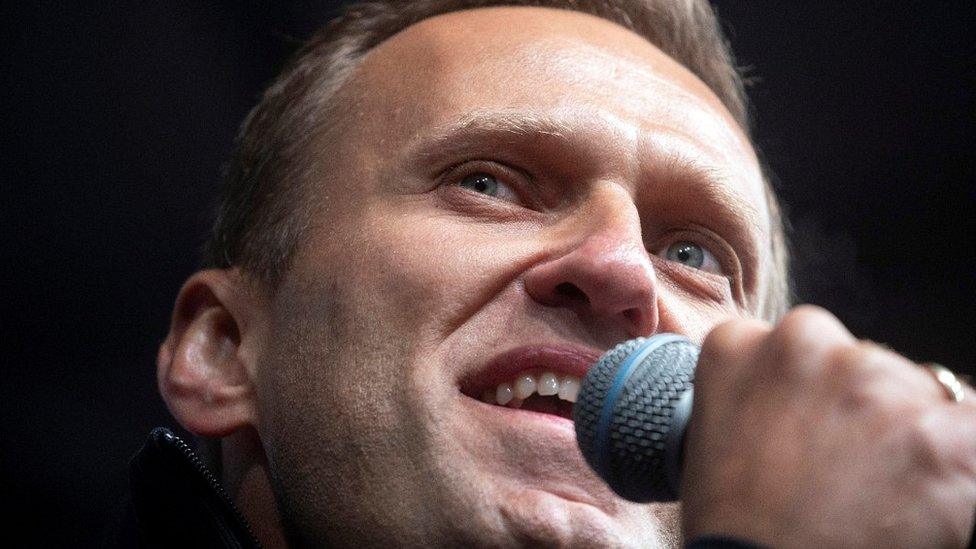Alexei Navalny: Nato says Russia must disclose its Novichok programme
- Published

Jens Stoltenberg said there was "proof beyond doubt" Mr Navalny was poisoned with novichok
Nato has called for Russia to disclose its Novichok nerve agent programme to international monitors, following the poisoning of activist Alexei Navalny.
Secretary General Jens Stoltenberg said members were united in condemning the "horrific" attack.
He added there was "proof beyond doubt" that a Novichok nerve agent was used against Mr Navalny.
But Russia has dismissed the diagnosis given by doctors in Germany, where he is being treated.
Speaking after an emergency Nato meeting, Mr Stoltenberg said the Kremlin "must fully co-operate with the Organisation for the Prohibition of Chemical Weapons on an impartial international investigation".
"We also call on Russia to provide complete disclosure of the Novichok programme to the OPCW," he added.
The Soviet-era nerve agent was also used to poison ex-spy Sergei Skripal and his daughter in the UK in 2018. Britain accused Russia's military intelligence of carrying out the attack, and - as part of a co-ordinated effort - 20 countries expelled more than 100 Russian diplomats and spies. Russia has denied any involvement.
However Mr Stoltenberg stressed that Mr Navalny's poisoning, which took place in Russia and not in a Nato member state, was different to that of the Skripals.
"We strongly believe that this is a blatant violation of international law [banning the use of any chemical weapons], so it requires an international response, but I will not now speculate about exactly what kind of international response," he said.

Mr Navalny has been a prominent opponent to Russia's President Vladimir Putin
But several senior Russian MPs have brushed off Nato's latest demands.
"Until experts have either confirmed or denied the use of chemical substances subject to the Chemical Weapons Convention, calls for involving the OPCW appear, in my view, politicised," said Konstantin Kosachev of Russia's Federation Council.
Laura Foster explains how the Novichok nerve agent works
Mr Navalny, an anti-corruption campaigner, has long been the most prominent face of Russian opposition to President Vladimir Putin.
He fell ill last month while onboard a flight from Siberia to Moscow. The plane made an emergency landing in Omsk and Russian officials were persuaded to let him be airlifted to Germany two days later.
The Kremlin says it has not seen German data on Mr Navalny's condition, and so does not accept the diagnosis of poisoning.
Since the incident, the EU has demanded a "transparent" investigation by the Russian government. The US National Security Council, too, has pledged to "work with allies and the international community to hold those in Russia accountable".
- Published3 September 2020
